Estonian soprano Mirjam Mesak is a current member of the Bayerische Staatsoper ensemble, where she has left an indelible impression in roles from Iolanta to Musetta. In September 2022, she portrayed the leading role in Axel Ranisch’s film “Orphea in Love”, which premiered at the Bavarian State Opera – proving that the soprano possesses not only an “outstanding voice” (Crescendo) but is also a skilled actress. The film was
subsequently released in cinemas throughout Germany. The 2023/24 season marks several exciting debuts for Mirjam Mesak. She adds to her repertoire the role of Xenia in “Boris Godunov” under the auspices of the Bayerische Staatsoper and sees her first performances with the Royal Danish Opera as Michal in Barrie Kosky’s production of “Saul”. Additionally in Munich, she reprises the roles of Musetta in “La bohème” and Dama di Lady Macbeth in “Macbeth”, and will also be seen in Shostakovich’s “The Nose” staged by Kirill Serebrennikov and led by Vladimir Jurowski, Verdi’s “Il trovatore” under Antonino Fogliani, and
Wagner’s “Parsifal” conducted by Adam Fischer. In Estonia, Mirjam appears regularly with the Estonian National Opera, Estonian National Symphony Orchestra, and Vanemuine Symphony Orchestra. In the 2023/24
season she returns to Tallinn to reprise her critically acclaimed Norina in “Don Pasquale” at the Estonian National Opera and appears as soloist in Symphony No. 2 (Mahler) with the Estonian National Symphony Orchestra under maestro Neeme Järvi. Commemorating the 150 th anniversary of Rudolf Tobias, the first Estonian professional composer and organist, she sings his oratorio “Joonas” with the Estonian
Philharmonic Chamber Choir and Tallinn Chamber Orchestra under the baton of Tõnu
Kaljuste.
Last season in Munich, Mirjam Mesak made her debut as Oscar in Johannes Erath’s production of “Un ballo in maschera” under Ivan Repušic. She also joined “Der Freischütz” as Ännchen conducted by Lothar Koenigs. Additionally, Mirjam was heard as Tebaldo (“Don Carlo”) under Andrea Battistoni, Anna (“Nabucco”) conducted by Daniele Rustioni, 1st Sprite (“Rusalka”) under Henrik Nánási, “The Cunning Little Vixen” led by Mirga Gražinytė-Tyla, and Musetta in “La bohème” conducted by Juraj Valcuha. She successfully jumped in for maestro Marek Janowski’s final concerts as the Music Director of the Dresdner Philharmonie.
In 2021/22 Mirjam appeared in an all-star cast of “La bohème” conducted by Asher Fisch, streamed internationally by the Bayerische Staatsoper, where her portrayal of Musetta was praised for its “beauty and elegance” (Opera Wire). She also appeared as Juliette in Simon Stone’s landmark production of “Die tote Stadt” under Kirill Petrenko, since released on DVD. Her portrayal of Tchaikovsky’s “Iolanta” at the Cuvilliés Theater conducted by Alevtina Ioffe earned Mirjam unanimous critical acclaim for her ability to bring an ‘unbelievable amount of depth’ to the character (Bachtrack) and can also be found on DVD.
During her tenure in Munich’s Opernstudio, Mirjam made tremendous impressions not only as “Iolanta”, but also in the roles of Freia (“Das Rheingold”), Nella (“Gianni Schicchi”) conducted by Daniele Rustioni, and the Dew Fairy in Richard Jones’ “Hänsel und Gretel” under Patrick Lange.
Mirjam Mesak is a graduate of Guildhall School of Music § Drama (First Class Honours) where she studied under the tutelage of Prof. Rudolf Piernay. She has performed as a soloist in several of London’s renowned concert halls such as the Barbican Hall, Milton Court Concert Hall (including as part of the LSO’s ‘This is Rattle’ festival), and Wigmore Hall.
In 2019 she was awarded with the Bavarian Art Prize in the section Performing Arts (Bayerische Kunstförderpreis in Der Sparte Darstellende Kunst).
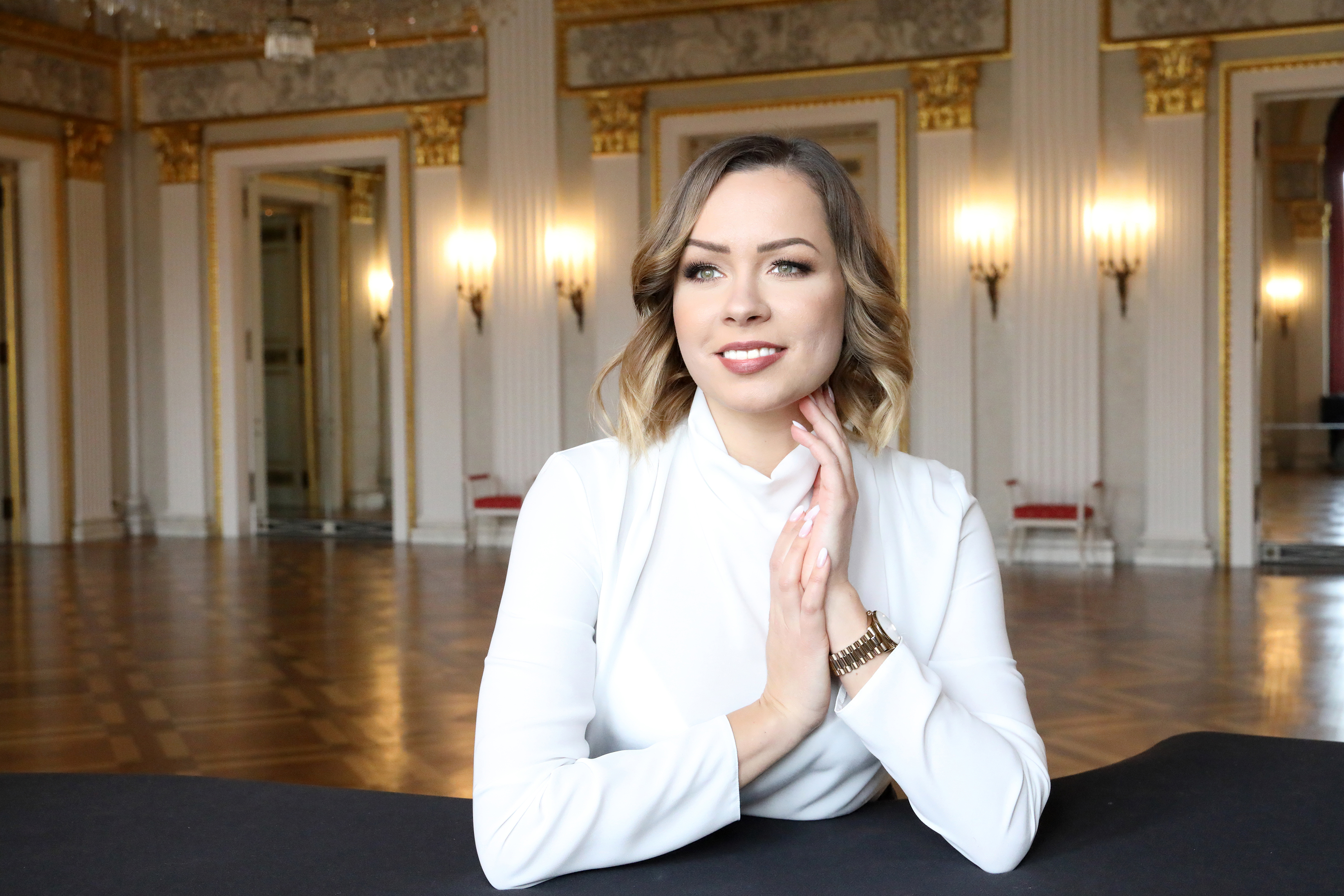
Mirjam Mesak / Foto: Wilfried Hösl
Kai Rüütel-Pajula (mezzo-soprano) has appeared to great critical acclaim on the stages of the Royal Opera House, Dutch National Opera, Theater an der Wien, Teatro Real, Opera Vlaanderen, Gran Teatre del Liceu, Scottish Opera, Théâtre du Capitole Toulouse, and Dallas Opera. A consummate singer and actress, she has collaborated with directors such as Robert Carsen, Laurent Pelly, Keith Warner and Calixto Beito.
The 2022/23 season sees Rüütel-Pajula make her debut at the Grand Théâtre de Genève as Sonyetka “Lady Macbeth of Mtsensk” and at the Opéra National de Lyon as Judith in Andriy Zholdak’s innovative new interpretation of “Bluebeard’s Castle”. She also returns to the Dutch National Opera as Die Wirtstochter in Christof Loy’s new production of “Königskinder” conducted by Marc Albrecht. On the concert platform, Rüütel joins Trondheim Symphony Orchestra under the baton of Han-Na Chang for Beethoven Symphony No. 9.
In the 2021/22 season, Rüütel-Pajula made her debut at Theater Dortmund as Fricka “Die Walküre” and returned to the Teatro Real as Second Norn “Götterdämmerung” and to the Estonian National Opera as Lyubasha “The Tsar’s Bride”. She also joined the Royal Philharmonic Orchestra for Elgar “Dream of Gerontius” conducted by Vasily Petrenko.
Recent concert and recital performances include her Estonian recital debut, accompanied by Roger Vignoles; her US debut with the St Louis Symphony Orchestra singing Mozart’s Requiem; at Gloucester Cathedral performing Elgar’s “Dream of Gerontius” and in recital with Roger Vignoles at Oxford Lieder; ‘Stars of Operalia’ gala at the Birgitta Festival; an opera gala concert with Simon O’Neill at the Mumbai National Center of Performing Arts; “Das Lied von der Erde” with the Tallinn Chamber Orchestra; a hugely acclaimed debut performance of Elgar’s “Dream of Gerontius” for The Three Choirs Festival; Beethoven’s Symphony No. 9 with the Residentie Orchestra of the Netherlands; Mahler “Rückert Lieder” at the Cadogan Hall; Beethoven Mass in C with City of Birmingham Symphony and Philharmonia orchestras; Zemlinsky’s “Sechs Gasange” at Philharmonie Berlin; and gala concerts in Latvia, the Czech Republic and with the RTE Orchestra and John Wilson.
Rüütel-Pajula studied at the Georg Ots Music School in Tallinn, the Koninklijk Conservatorium in The Hague and the Dutch National Opera Academy. In 2009 Rüütel became a member of the prestigious Jette Parker Young Artists Programme at the Royal Opera House, Covent Garden, making her debut as Venerable Lady in “The Gambler” and covering the role of Blanche. Her roles for the company included Hänsel “Hänsel und Gretel”, Rosette “Manon” and Flora “La traviata” (also performed on tour in Japan), Second Lady “Die Zauberflöte” conducted by Sir Colin Davis, and Dorothée “Cendrillon”. She covered Madame Dangeville “Adriana Lecouvreur”, Charlotte “Werther” and Dunyasha “The Tsar’s Bride”.
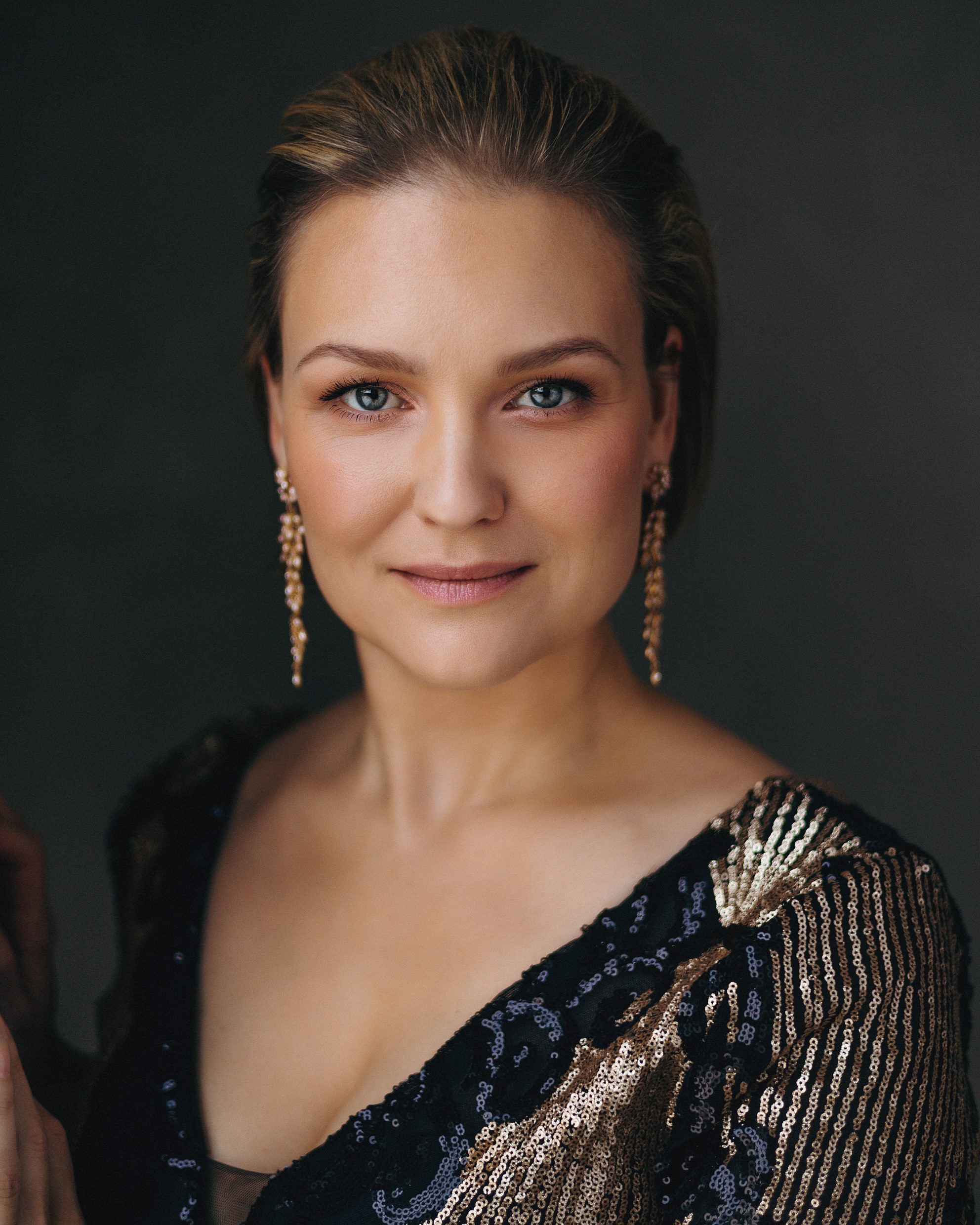
Kai Rüütel-Pajula / Fotot: Krõõt Tarkmeel
Heldur Harry Põlda (tenor) is a graduate of the Guildhall School of Music & Drama (First Class Honours) where he studied under the tutelage of David Pollard and Ruby Philogene. He began his music studies at the Tallinn Music High School, where he studied choral conducting under the tutelage of Hirvo Surva and the violin with Prof. Mari Tampere-Bezrodny.
Heldur Harry made his singing debut at the Estonian National Opera at 8 years old and has performed various opera and musical theatre roles since then. He joined the Estonian National Opera ensemble as a soloist in 2019, his recent roles include Ivan Lykov (“The Tsar’s Bride”), Camille de Rosillon (“The Merry Widow”), Tybalt (“Romeo and Juliet”), Orpheus (“Orpheus in the Underworld”) and Tamino (“The Magic Flute”).
In 2008, Põlda won the Estonian Culture Endowment Award for the role of Miles in Britten’s opera “The Turn of the Screw”. In 2010, he won the Estonian Choral Association’s Cooperation Award and in 2013 the Estonian National Culture Foundation Georg Ots Scholarship. In 2022, he won the 2nd place at the 29th Lions European Thomas Kuti Music Competition in Zagreb.

Heldur Harry Põlda / Foto: Johanna-Stina Talivere
Alvar Tiisler (baritone) has performed with orchestras like Russian National Chamber Orchestra in Moscow's Tchaikovsky Concert Hall, Israel Chamber Orchestra, Israel Camerata, Sinfonietta Rīga, Klaipeda Chamber Orchestra, Barrocade Ensemble, Tallinn Chamber Orchestra and Estonian Sinfonietta. As a soloist, his performed repertoire includes J. S. Bach's “St John Passion”, “St Matthew Passion”, “Christmas Oratorio”, “Mass in B minor”, “Magnificat” and many cantatas, also Händel's “Messiah”, “Jephtha”, “Theodora”, “Judas Maccabeus”, “Esther”, “Resurrezione”, “Israel in Egypt”, “Dixit Dominus”, Mozart’s “Requiem”, Mendelssohn’s “Elijah”, Charpentier's “Te Deum” and Purcell's “Hail! Bright Cecilia”. He is also collaborating with leading European vocal ensembles like Collegium Vocale Gent, RIAS Kammerchor Berlin and MusicAeterna which has also included live concerts for Mezzo and ARTE. He has performed as a soloist and with various ensembles in United States, Canada, Japan, South Korea, Israel, Russia and almost everywhere in Europe.
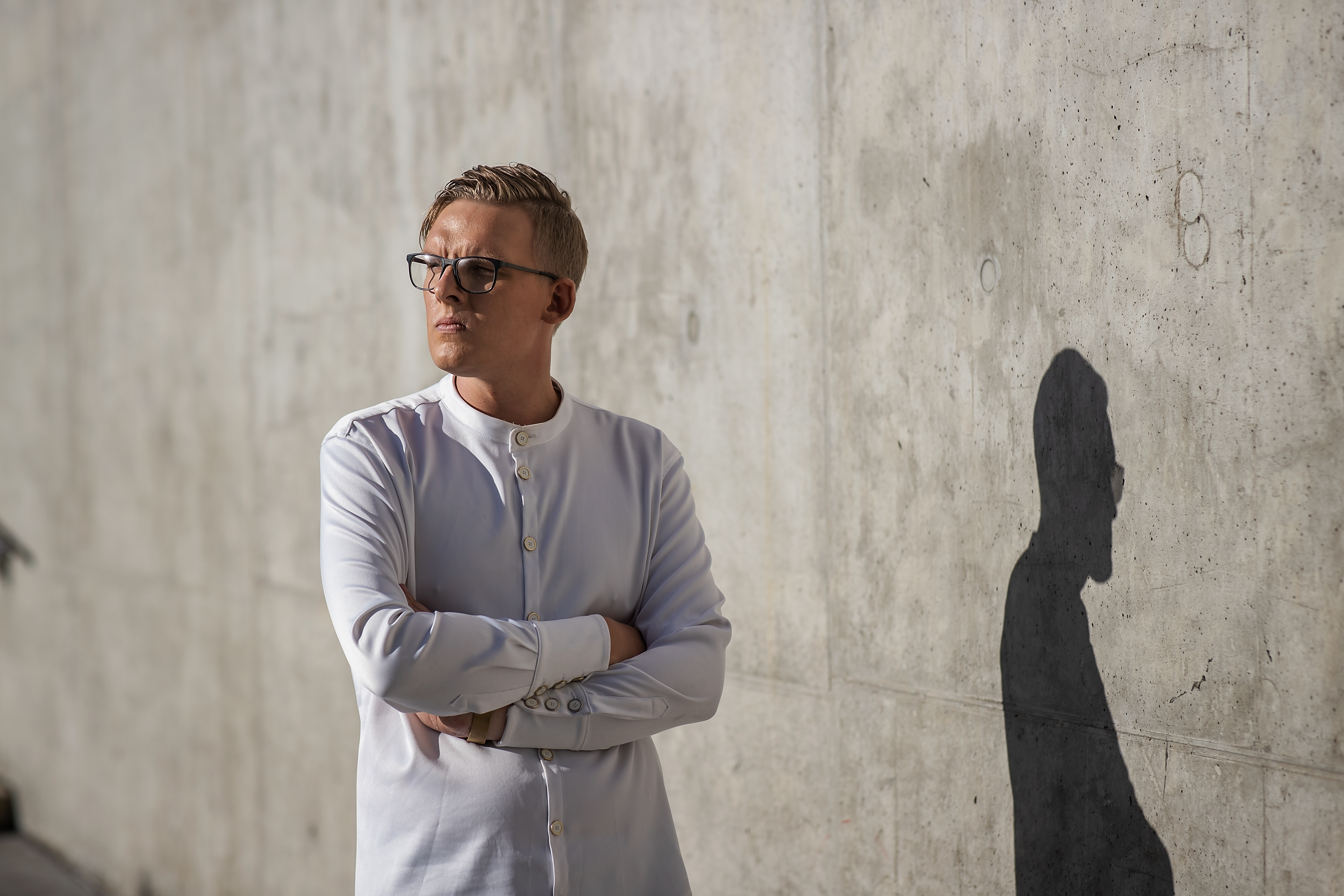
Alvar Tiisler / Foto: Joosep Martinson
The Estonian Philharmonic Chamber Choir (EPCC) has established itself as one of the world’s leading choral ensembles. The EPCC was founded in 1981 by Tõnu Kaljuste, who was the artistic director and chief conductor for twenty years. He was succeeded by Paul Hillier (2001–07), Daniel Reuss (2008–13) and Kaspars Putniņš (2014–21). Since the season 2021/22 the artistic director and chief conductor is again Tõnu Kaljuste.
The choir’s repertoire extends from Gregorian chant and the Baroque to music of the 21st century, with a special focus on the work of Estonian composers, such as Arvo Pärt, Veljo Tormis, Erkki-Sven Tüür, Galina Grigorjeva and Tõnu Kõrvits. Each season, the choir gives about 60–70 concerts both in Estonia and abroad. The EPCC has cooperated with a number of outstanding conductors, including Claudio Abbado, Helmuth Rilling, Neeme Järvi, Paavo Järvi, Olari Elts, Andrew Lawrence-King, Roland Böer, Frieder Bernius, Stephen Layton, Marc Minkowski, Sir Colin Davis, Paul McCreesh,
Andrés Orozco-Estrada and Gustavo Dudamel. The EPCC has also worked with many leading orchestras, including the London Symphony Orchestra, the Mahler Chamber Orchestra, the Salzburg Camerata, Les Musiciens du Louvre-Grenoble, the Philip Glass Ensemble, the Frankfurt Radio Symphony Orchestra and the Los Angeles Philharmonic.
The choir has been a welcome guest at numerous music festivals and venues all over the world, including the BBC Proms, the Mozartwoche, the Festival Aix-en-Provence, the International Cervantino Festival, the Sydney Opera House, Wiener Konzerthaus, the Royal Concertgebouw in Amsterdam, the Lincoln Centre and Carnegie Hall in New York and the Walt Disney Concert Hall in Los Angeles.
Another important aspect in the choir’s life is recording, resulting in various award-winning albums. EPCC recordings have twice won a Grammy for Best Choral Performance: for Arvo Pärt’s “Da Pacem” with conductor Paul Hillier and for Arvo Pärt’s “Adam’s Lament” with conductor Tõnu Kaljuste. All in all, the choir has received 16 Grammy nominations, and some of the choir’s recordings have won awards such as the Diapason d’or, Preis der Deutschen Schallplattenkritik, Danish Music Award and de Choc de l’Année Classica 2014. In 2020, BBC Music Magazine named EPCC as one of the 10 best choirs in the world.
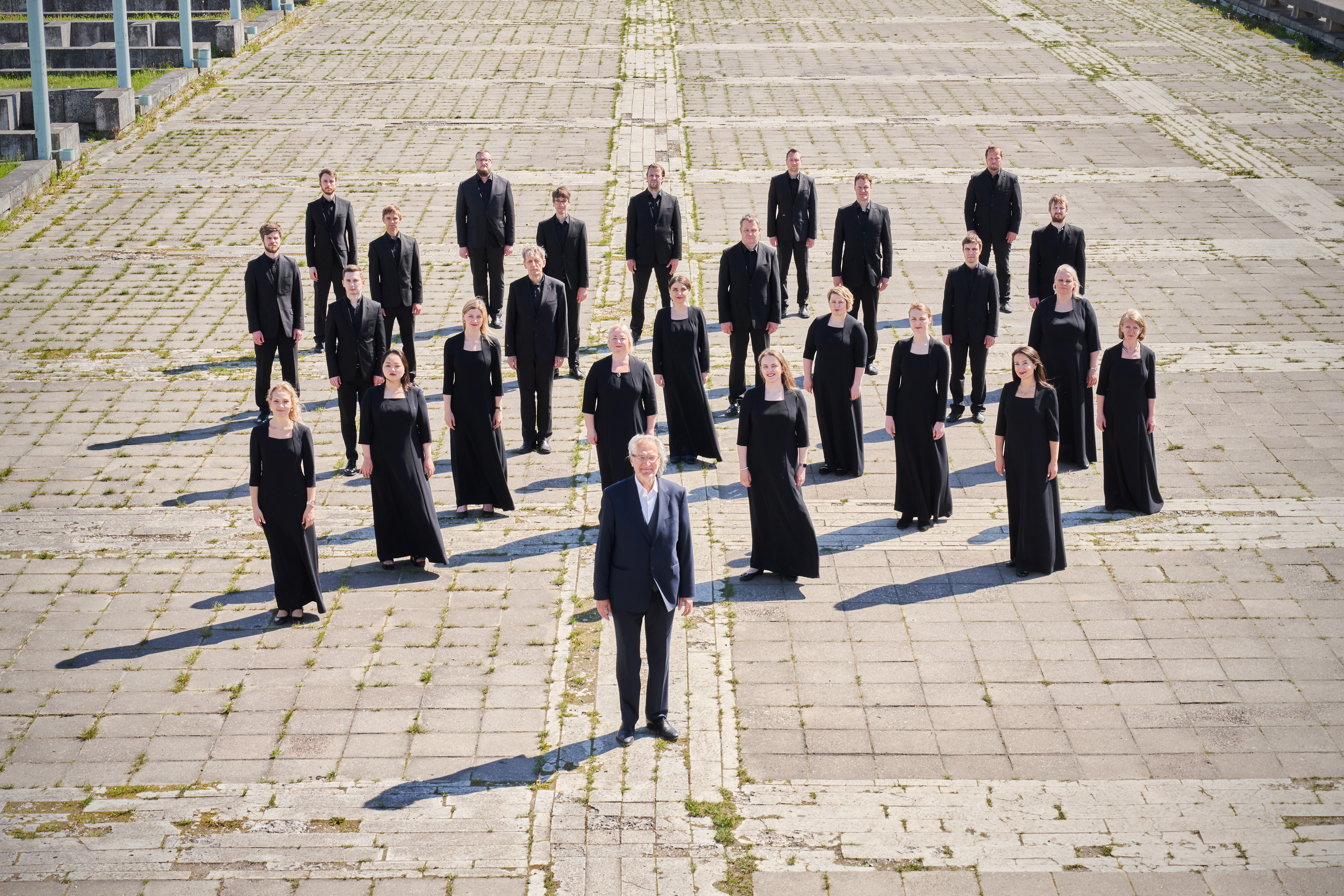
Eesti Filharmoonia Kammerkoor / Foto: Kaupo Kikkas
The Latvian Radio Choir ir a unique, award-winning collective of professional singers that offers an extraordinarily wide repertoire to its audience, allowing the exploration of early music and the gallantry of classicism, balancing in the sea of romantics’ overflowing emotions, and excitedly diving into contemporary composers’ musical calembours.
The Latvian Radio Choir has participated in the recording of the album of Arvo Pärt’s Adam’s Lament that received the prestigious Grammy music award. The choir is a repeat winner of the highest national award for achievements in professional music in Latvia – the Grand Music Award, as well as the winner of the Republic of Latvia Cabinet of Ministers Award. The British magazine Gramophone named the choir’s recording of Sergey Rachmaninoff’s Vespers its Recording of the Month in February 2013 and the American radio station NRP put the recording on its Top 25 Albums of the Year list. The choir’s album with Peter Tchaikovsky’s music Liturgy of St. John Chrysostom. Nine Sacred Choruses (Ondine) won the 2020 International Classical Music Award as the best choral work and was also nominated for the BBC Music Magazine award.
Ondine, Hyperion Records, Deutsche Grammophon, ECM, BIS, Naïve, Prima Classica and Skani recording labels regularly produce new Latvian Radio Choir albums, in collaboration with such great conductors as Heinz Holliger, Riccardo Muti, Riccardo Chailly, Gustavo Dudamel, Lars Ulrik Mortensen, Esa-Pekka Salonen, and Peter Phillips. The choir has worked with the Lucerne Festival Orchestra, Ensemble Intercontemporain, Ensemble Contrechamps, the Los Angeles Philharmonic, Camerata Salzburg, and Concerto Copenhagen.
The Latvian Radio Choir has been a guest in the most prominent European concert venues, including the Concertgebouw and Muziekgebouw in Amsterdam, the Elbphilharmonie in Hamburg, and the Théâtre des Champs-Elysées and Cité de la Musique in Paris. The choir has collaborated with the Lincoln Center, the Kennedy Center, and the Walt Disney Concert Hall, it has performed at the Duke University Chapel, the US Library of Congress, Queen Elizabeth Hall, the Berlin Concert Hall, and the Church of Our Lady in Dresden, Germany, and has become the first vocal collective to perform at the new Hague concert venue Amere.
The choir has been a guest at several prestigious music festivals, including the BBC Proms, the Salzburg festival, the new music festival Klangspuren, the Lucerne Festival, the Festival Radio France Occitanie Montpellier, the Musikfest Erzgebirge of Dresden and Klangvokal in Dortmund, the Baltic Sea Festival in Stockholm, OzAsia Festival in Australia and the Spring Arts Festival in Monte Carlo. The choir earned a lot of acclaim in North America, participating in the White Light Festival in the U.S. and Soundstreams in Canada.
The Latvian Radio Choir is like a laboratory of creative discovery in the hands of young composers, encouraging them to feel and explore the boundaries of classical vocal singing. During the past twenty years, this musical unit has created a previously unseen understanding of the choir as a multi-layered instrument, in which the unique, characteristic sonic whole of the Latvian Radio Choir is created by the important task of each individual and the unique palette of timbres.
The Latvian Radio Choir was founded in 1940 by the legendary Latvian conductor Teodors Kalniņš, who led it until his death in 1962. From 1963 to 1986, the artistic director of the choir was Edgars Račevskis, and after his tight grip on the choir, conductor Juris Kļaviņš became the leader from 1987 to 1992. Since 1992, the Latvian Radio Choir has been led by the artistic director and principal conductor Sigvards Kļava and conductor Kaspars Putniņš.
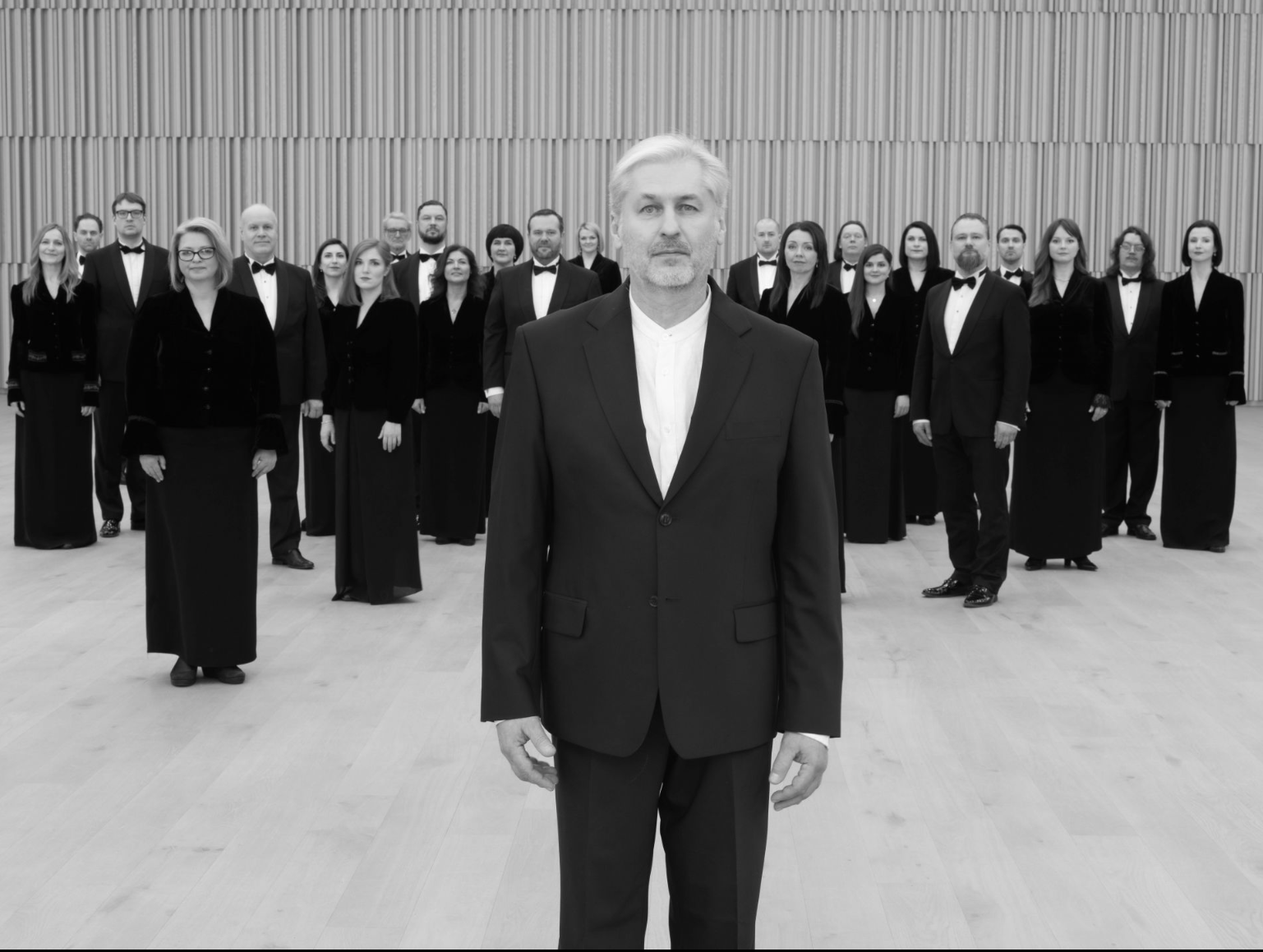
Läti Raadio koor / Jānis Deinats
The Estonian National Symphony Orchestra (Eesti Riiklik Sümfooniaorkester, ERSO) – a vivid and versatile orchestra who’s always striving towards excellence. The unique position in the intersection of cultures brings together Nordic, Western and Russian musical traditions. Celebrating its 100th anniversary in 2026, ERSO has become the most prominent orchestral ambassador of Estonia abroad, powerfully increasing its international scope particularly in recent decades. Since the 2020/21 season, its Chief Conductor and Artistic Director is Olari Elts. Neeme Järvi, the longest-serving chief conductor of the ERSO, continues to cooperate with the orchestra as an Honorary Artistic Director for Life and the Artistic Adviser of the orchestra is Paavo Järvi.
The orchestra performs with renowned conductors and soloists from around the world, including, of course, most prominent Estonian musicians. ERSO’s CDs demonstrate a quality that has been recognised by several renowned music magazines and the orchestra has won several prizes, including a Grammy Award for the recording of cantatas by Sibelius. Its home venue is the Estonia Concert Hall in Tallinn and it has dazzled the world with numerous tours and participated in reputable international music festivals. They have played in prestigious venues such as the Konzerthaus Berlin, Musikverein in Vienna, Rudolfinum in Prague, Brucknerhaus in Linz, the Avery Fisher Hall (current David Geffen Hall) in New York, the Grand Hall of Saint Petersburg Philharmonia and the Concert Hall of the Mariinsky Theatre, the Kölner Philharmonie, the Helsinki Music Centre, Berwaldhallen in Stockholm, and many more. Some of the most recent festivals ERSO has attended include the Festival Radio France Occitanie Montpellier with Neeme Järvi and the Eufonie International Festival of Central and Eastern Europe in Warsaw under the baton of Olari Elts. One of the highlights of last season was a concert tour with Olari Elts and violinist Daniel Lozakovich, which took the orchestra to Isarphilarmonie in Munich, La Seine Musicale in Paris and Meistersingerhalle in Nuremberg. The season ended with another successful concert tour to Great Britain, where 11 concerts were given with pianist Barry Douglas under the baton of Olari Elts.
The orchestra has enjoyed fruitful cooperation with highly acclaimed record companies such as Chandos, BIS, and Onyx, and in the past also with Alba Records, Harmonia Mundi, and Melodiya. In addition to local radio and television channels, ERSO’s concerts have been broadcasted by Mezzo, medici.tv and they have also reached many radio listeners via the EBU. In 2020, the orchestra launched its own channel – erso.tv.
As for conductors and soloists, ERSO is fortunate to perform with the very best from all around the world, including front-rank Estonian musicians. Commanding a repertoire that ranges from the Baroque period to the present time, the ERSO has had the honour to premiere symphonic pieces by almost every Estonian composer, including Arvo Pärt, Erkki-Sven Tüür, Jüri Reinvere, and Eduard Tubin.
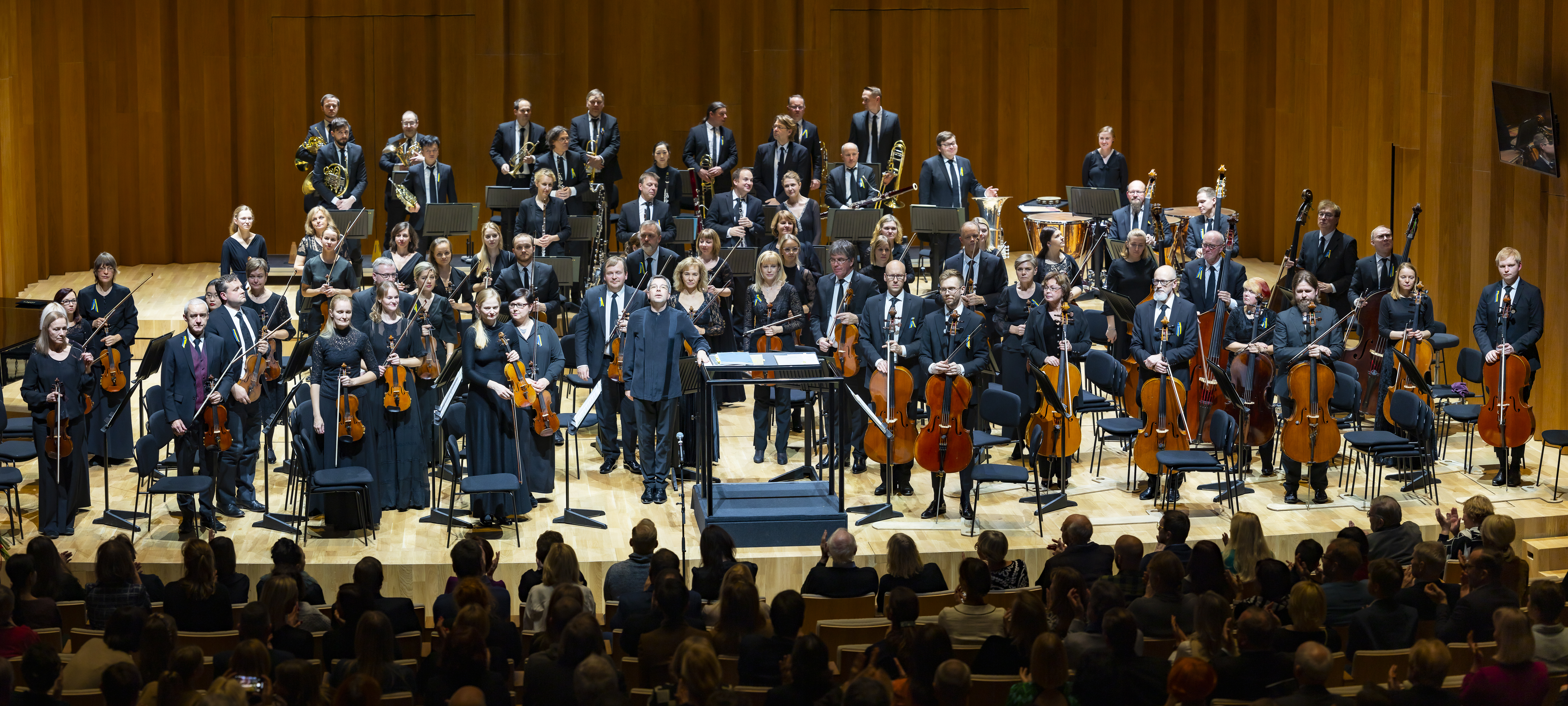
ERSO / Foto: Tiit Mõtus
Tõnu Kaljuste is a world-renowned choir and orchestra conductor. His most historic achievement to date is the Grammy for Best Choral Performance for the Arvo Pärt album “Adam’s Lament” in 2014. His recordings have had a number of Grammy nominations in various categories from opera (“David and Bathsheba” of the Norwegian composer Ståle Kleiberg) to symphonic music. In 2019 he won the International Classical Music Award for the recording of Arvo Pärt’s symphonies with the NFM Wrocław Philharmonic Orchestra. Kaljuste’s recordings have won several other prestigious prizes such as the Cannes Classical Award (1999), Diapason d’Or (2000), Edison Musical Award (2000) and Classic BRIT Award (2003). He has recorded for the ECM Records, Virgin Classic, BIS and Caprice Records labels.
Collaboration with leading orchestras and choirs in Europe, Australia, Canada and the USA has added an extra dimension to Kaljuste’s international renown. Kaljuste has been the Principal Conductor of the Netherlands Chamber Choir and the Swedish Radio Choir and was named Conductor Laureate of the latter in 2019. Tõnu Kaljuste served as Professor and Chair of the Conducting Faculty of the Estonian Academy of Music and Theatre from 2010 to 2020. He is the founder of the Tallinn Chamber Orchestra (1993) and since the 2019/20 season once again its Principal Conductor and Artistic Director. Kaljuste founded the Estonian Philharmonic Chamber Choir in 1981 and is back after 20 years, from August 2021 as its Principal Conductor and Artistic Director. Kaljuste has served as Artistic Director of Nargen Opera, the project theatre that he launched, since 2004 and led Nargenfestival, a notable event in Estonia’s music calendar, since 2006. From 2022, Kaljuste is also the artistic director of the Birgitta Festival, organized by the Tallinn Philharmonic Society.
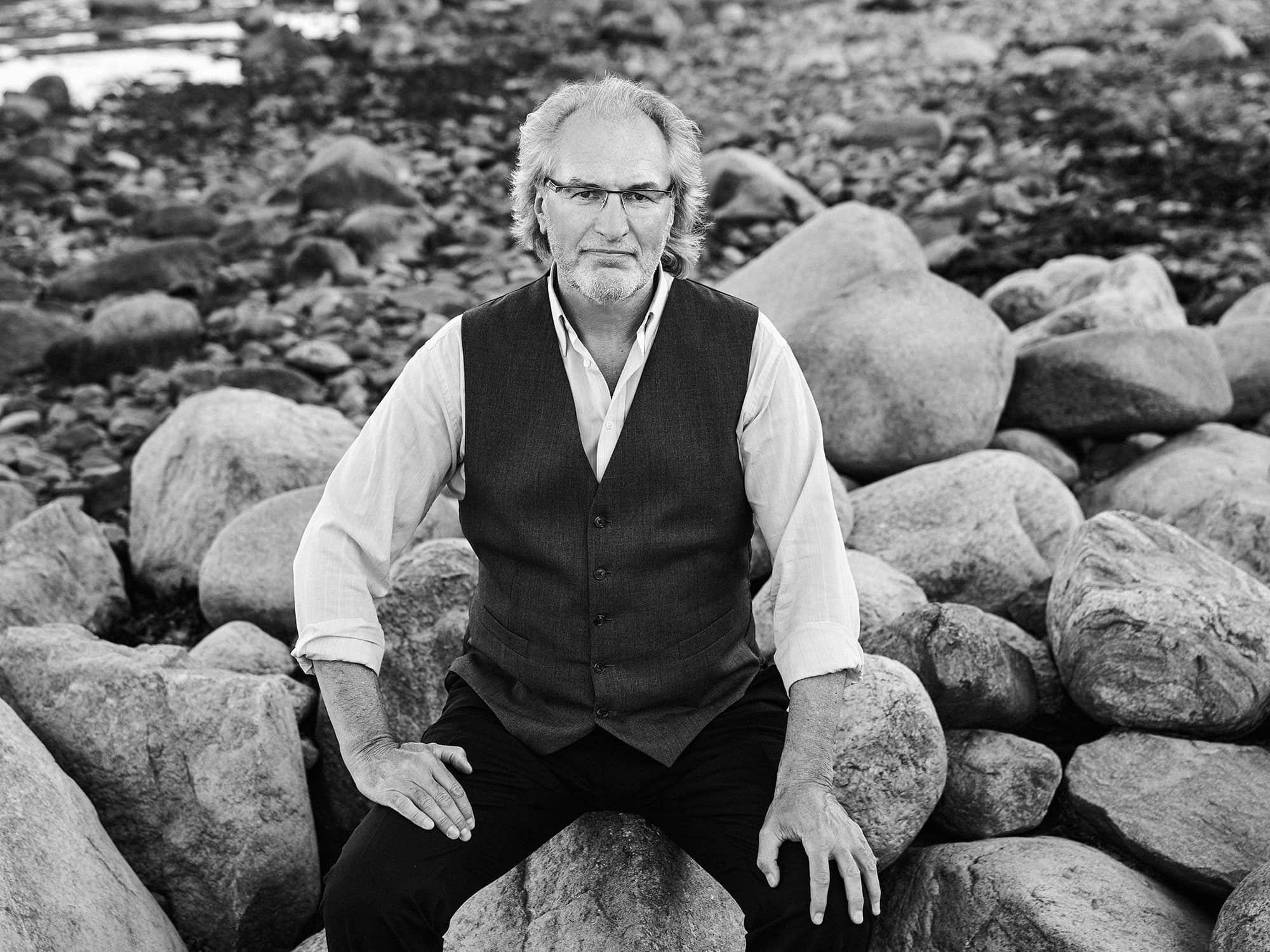
Tõnu Kaljuste / Foto: Kaupo Kikkas






